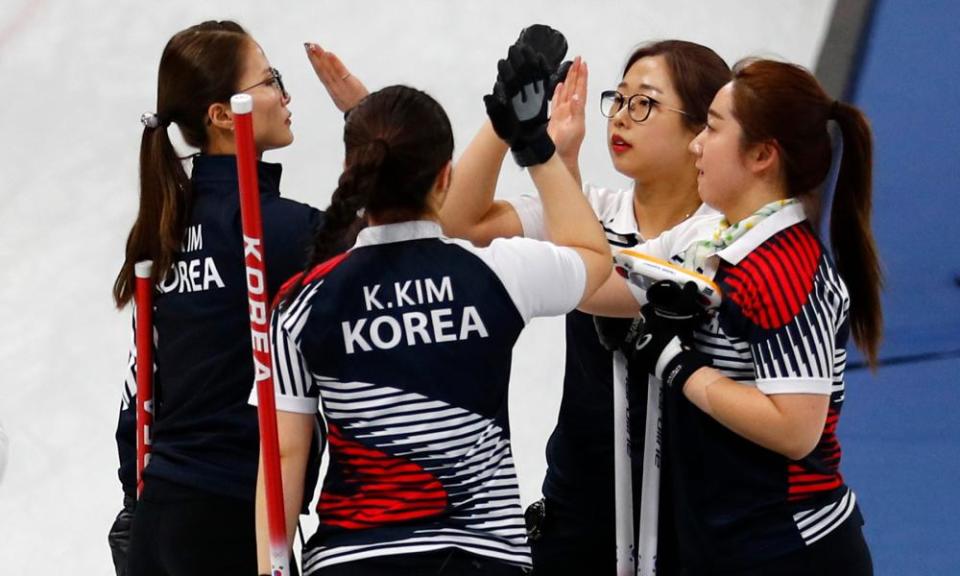Garlic Girls: South Korean curling team ward off more seasoned rivals

In name only are the Garlic Girls about food. There’s Yogurt, Pancake, Steak, Cookie and Sunny – as in eggs sunny side up. But they are not the next K-pop sensation: they are the South Korean women’s curling team.
The five women – collectively known as the Garlic Girls, after their garlic-producing hometown – have become internet sensations after a winning streak that has put them within striking distance of a medal at the Winter Olympics.
Two are sisters – Kim Yeong-mi and Kim Kyeong-ae – and their team-mates Kim Eun-jung, Kim Seon-yeong and alternate Kim Cho-hi all share the surname that is the most common in the country. Their most recent 11-2 victory over the Olympic athletes from Russia secured their place in the semi-finals.
“They’re very resilient,” said Nina Roth, the US team captain, after losing to South Korea on Tuesday. “They’ve got the home-court advantage.”
That advantage has built as the tournament progressed, with recent games packed with local fans. Deft plays are followed by roars from the crowd and the team’s captain, Kim Eun-jung, has spawned dozens of memes.
The many faces of Kim Eun-jung aka 'Annie,' the leader of S Korea's women's curling team, 'Garlic Girls' pic.twitter.com/oQVP2K1PJn
— Joseph Kim (@josungkim) February 20, 2018
Her singular focus and stern demeanour during play has made her a crowd favourite. While there is always a lot of screaming in curling, Kim Eun-jung’s shouts to direct her teammates have become a source of humour and admiration.
Their breakout success has come as a surprise to many. South Korea sent its first women’s curling team to the Olympics in 2014 and among citizens the sport remains deeply obscure.
But the Garlic Girls are not an overnight success and their appearance at the Winter Olympics has been a decade in the making. Their hometown of Uiseong built a curling centre in 2006 with funding from the local government, just in time for the four main members of the team to play in secondary school.
They came to Pyeongchang as the clear underdogs, starting the Games ranked eighth in the world, but began play on Wednesday at the top of the pack.
Peter Gallant, a Canadian who coaches the South Korean national team, said they had improved significantly in the past two years.
“They are great, great kids and they just lapped it up,” he told reporters. “They are playing the game smart.
“I hardly take any notes after a game now. It used to be a book-load after every game.”

 Yahoo Sport
Yahoo Sport 





































